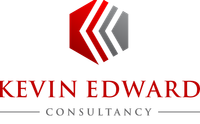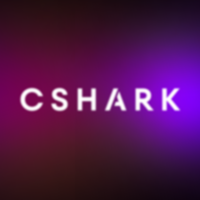Back End Developer
New
Java

Type of work
Full-time
Experience
Senior
Employment Type
B2B
Operating mode
Hybrid
Tech stack
DevOps
Cloud
Oracle DB
BPMN2
Kafka
Java
Oracle
Elasticsearch
Spring
Spring Boot
Job description
Online interview
Friendly offer
Project Scope:
The initial project is a corporate crisis management solution that will be co-developed by different departments using an event-driven architecture incorporating existing corporate building blocks and possibly open source, governmental or commercial components.
Technical Tasks:
- BPMN and Model Comprehension: Interpret and understand BPMN 2.0 specifications, BPMN models, and UML diagrams.
- Requirement Analysis: Analyze and understand functional and technical requirements.
- Backend Development: Implement existing functional requirements for the backend using project-specific technologies.
- Best Practices Adherence: Apply industry-standard implementation best practices.
- API Design and Development: Design and create well-structured APIs.
- Scalable Software Development: Contribute to the design and development of scalable software solutions.
- Project Leadership: Take on leadership roles in projects as needed.
- Code Quality and Organization: Maintain code integrity and organization.
- Microservices and Databases: Develop microservices and databases to support functionality.
- Data Storage Solutions: Design and implement effective data storage solutions.
Non-Technical Tasks:
- Cross-Cultural Collaboration: Demonstrate the ability to work effectively in international and multicultural environments on large-scale projects.
- Teamwork: Excel as a team player and collaborate effectively with others.
- English Proficiency: Possess excellent English language skills, both written and spoken.
- Confidentiality and Integrity: Maintain a high degree of discretion and integrity when handling sensitive personal and confidential data.
- DevOps Integration: Integrate DevOps pipelines into project workflows.
- Problem Solving and Analysis: Analyze data, processes, and code to identify and resolve issues and improve efficiency.
- Testing and Quality Assurance: Prepare and execute test scenarios and cases, and address bugs or coding issues.
- Security and Data Protection: Understand and implement security and data protection measures.
- Customer-Centric Approach: Meet both technical and user needs.
- Technical Documentation: Create clear and comprehensive technical documentation.
Technical Skills:
- Java and Spring Framework: Expertise in developing applications using Java, Spring, Spring Boot, and Kafka.
- Architectural Best Practices: Strong understanding of architectural best practices and patterns.
- Cloud-Native Architecture: Proficiency in microservices and cloud-based architectures.
- Event-Driven Architecture: Knowledge of event-driven architecture, event sourcing, and CQRS.
- Application Design: Solid understanding of application design principles and methodologies.
- Modeling Tools and Standards: Familiarity with modeling tools and standards, such as BPMN.
- Relational Databases: Expertise in relational database management systems.
- DevOps Practices: Knowledge of DevOps pipelines and practices.
- Graph Databases (Optional): Experience with graph databases is a plus.
- Camunda and Business Process Automation: Proficiency in business process analysis, modeling, and automation using Camunda.
- Interoperability Technologies: Understanding of interoperability technologies like web services, message-oriented middleware, service-oriented bus, and event architecture.
Non-Technical Skills:
- Adaptability: Ability to quickly adapt to new technologies and trends in application architecture and design.
- Communication and Collaboration: Excellent interpersonal and communication skills.
- Decision Making: Strong decision-making and delegation skills.
- Technical Writing: Ability to write clear and concise technical documentation.
- Presentation Skills: Confidence in delivering technical presentations.
- Quality Focus: Commitment to applying high-quality standards in work.
Minimum Education Level:
- Bachelors Degree + 13 years or Masters Degree + 9 years of experience
Specific Expertise:
- Integration Platforms: Experience with middleware integration platforms and architectures, including microservices, macroservices, and event-driven approaches.
- Java and Spring Framework: Proficiency in Java, Spring, and Spring Boot.
- Kafka: Expertise in Kafka message broker.
- Databases: Experience with relational databases, such as Oracle, and search engines like ElasticSearch.
- Process Analysis and Automation: Strong skills in process analysis, streamlining, and automation. Familiarity with contemporary tools and techniques, business process management and modeling, and the BPMN 2.0 specification. Deep knowledge of the Camunda framework, including its executable BPMN specification subset restrictions and Camunda-specific configurations.
- Continuous Integration and Deployment (CI/CD): Expertise in CI/CD practices and tools, including GitLab, Jira, Confluence, Bamboo, Nexus, Crucible, Jenkins, and Sonar.
- DevSecOps (Optional): Experience with modern DevSecOps practices and tools, such as Docker and Kubernetes.
Any of the following skills or experience would be considered an advantage:
- Integration Architectures: Understanding of middleware integration platforms, microservices, macroservices, and event-driven architectures.
- Development Expertise: Proficiency in Java, Spring, and Angular development.
- Adaptability to New Technologies: Ability to keep up with rapidly evolving technologies in application architecture, design, and cloud integration.
Working Methods, Conditions & Environment:
- Service Delivery: Remote but travel to site in Brussels is required as and when.
- IT Equipment: Provided
- Onsite Presence: May be requested with 7 days notice.
- Meetings: You may be required to attend meetings either onsite or in other locations as required.
- Security: Non EU contractors are subject to security screenings before the contract begins.
- Relocation: to Brussels or within reasonable commuting distance to the site is madatory for this role.
10 428 - 13 035 USD
Net/month - B2B
Apply for this job
I am happy for Kevin Edward Consultancy Limited to save my contact details for future correspondence.
Check similar offers




